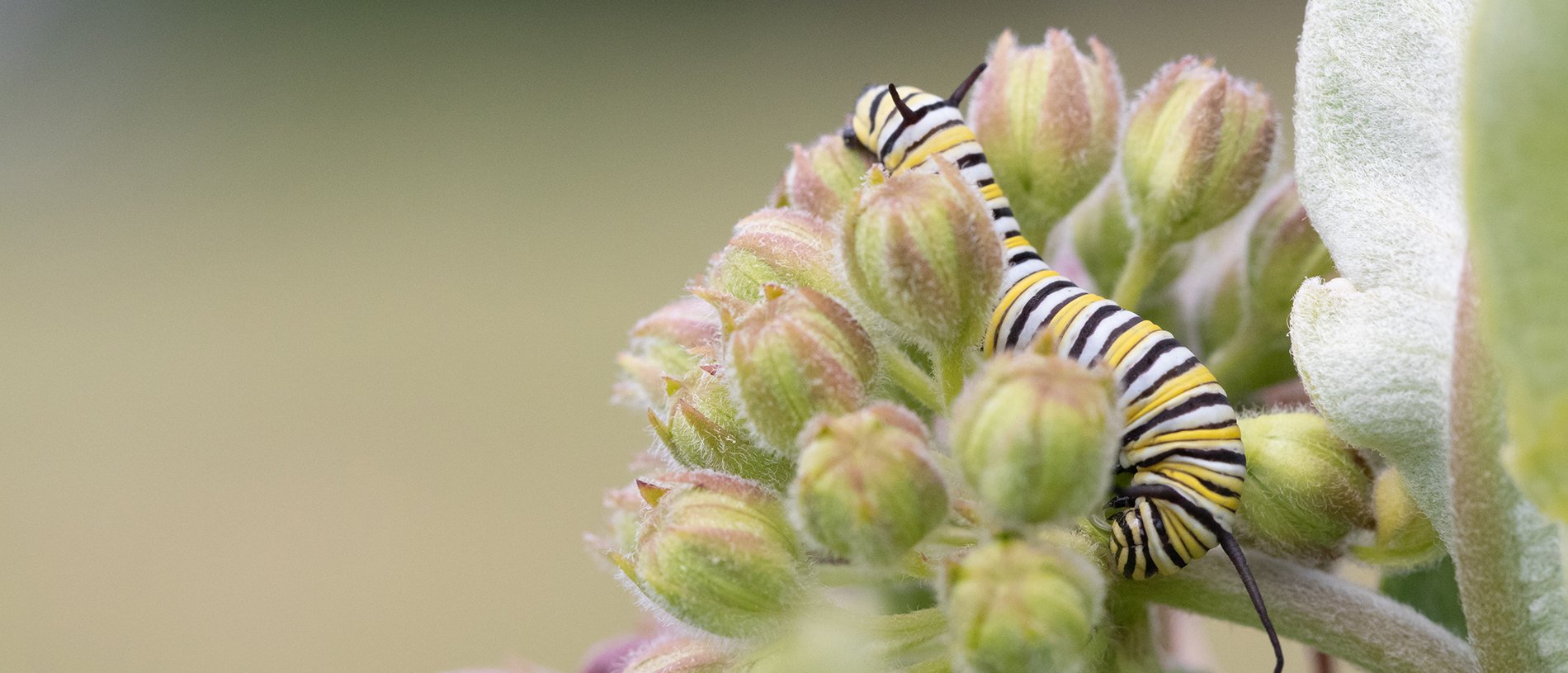Breeding Bird Atlases (BBA)
Find a Bird
Leach's Storm-Petrel
Oceanodroma leucorhoa
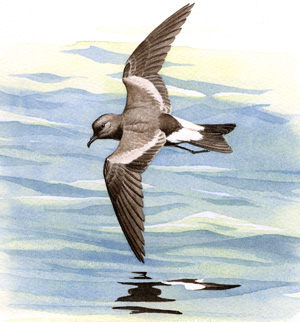
Very local and trend not established
“That is the courageous Petrel proudly soaring in the lightning over the sea’s roar of fury;” – Maxim Gorky, “The Song of the Stormy Petrel”
Although this bird's global population ranges into the tens of millions of individuals, it is a species seldom seen by most birders. The Leach's Storm-Petrel is a bird of deep ocean and open sea, where it hovers and patters just above the surface, picking off small plankton and nekton (i.e., swimming organisms) to eat. The only time these birds come ashore is to breed, and even then only under the cover of darkness to avoid predation from hungry gulls. As it happens, two small colonies of Leach’s Storm-Petrels have become established in Massachusetts.
Historic Status
Mother Cary's Chickens, as they were known to the men who “went down to the sea in ships,” stay mostly far offshore by day and nest at latitudes north of Massachusetts (Forbush 1925). Forbush tells of cruising with a friend to the Maine islands to see them, but they were never discovered nesting in Massachusetts during his lifetime (Forbush 1925). Leach's Storm-Petrels were first noted on Penikese Island at the end of the Elizabeth Island chain off Falmouth in 1930, but breeding evidence was elusive. Finally, on August 24, 1940, then state ornithologist Joseph A. Hagar found a partially fledged chick; and in 1941 Hagar mapped the location of 80 nests on Penikese (Petersen & Meservey 2003).
Atlas 1 Distribution
Leach’s Storm-Petrels were only known to breed at a single Massachusetts locality in Atlas 1 – the one and only place they had ever been previously recorded nesting in the state. Penikese Island hosted a number of nesting pairs during Atlas 1, most located in crevices in a rock wall on the island. Some birds had also excavated their own burrows in the island’s sandy soil, to which they returned under cover of darkness to feed their chicks without being harassed by hungry gulls.
Atlas 2 Distribution and Change
Atlas workers tried valiantly to Confirm the continued breeding of Leach’s Storm-Petrels on Penikese Island during Atlas 2, but the species proved difficult to find. Even so two birders trained in the art of smelling for burrows were able to affirm the presence of the storm-petrels in the same stone wall where they had historically nested for the latter half of the twentieth century, but ironically no breeding code for olfactory Confirmation existed (Galluzzo & Sibley, pers comm). Fortunately, however, the species was Confirmed a short distance away, on abandoned Noman’s Island, off the southwestern corner of Martha’s Vineyard. For the time being, the legacy of the Leach’s Storm-Petrel as a breeder in Massachusetts continues.
Atlas 1 Map
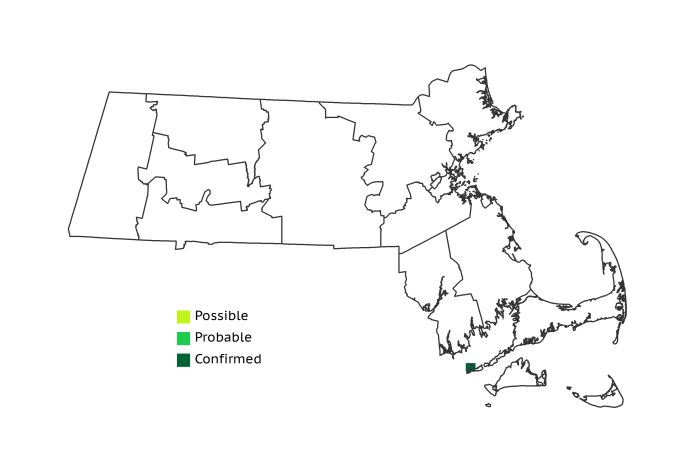
Atlas 2 Map
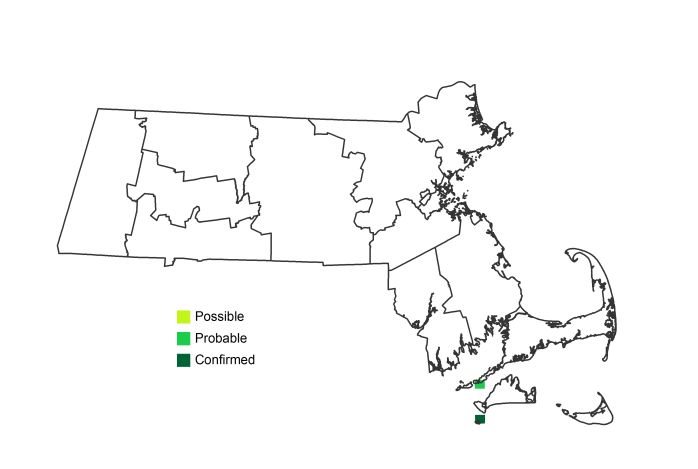
Atlas Change Map
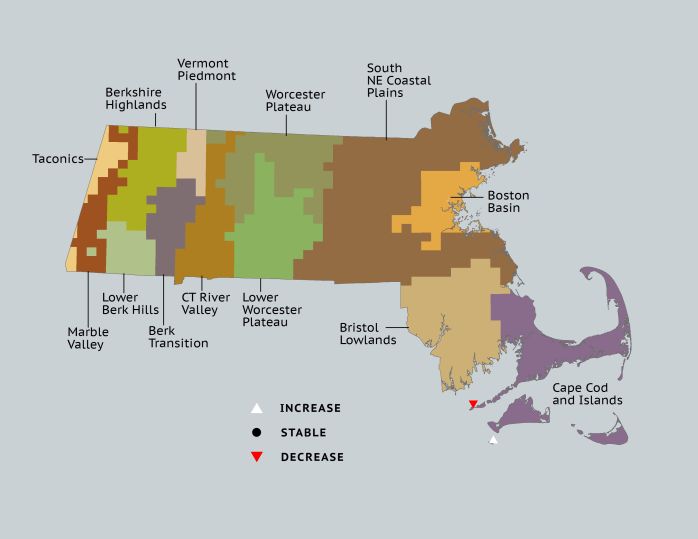
Ecoregion Data
Atlas 1 | Atlas 2 | Change | ||||||
Ecoregion | # Blocks | % Blocks | % of Range | # Blocks | % Blocks | % of Range | Change in # Blocks | Change in % Blocks |
Taconic Mountains | 0 | 0.0 | 0.0 | 0 | 0.0 | 0.0 | 0 | 0.0 |
Marble Valleys/Housatonic Valley | 0 | 0.0 | 0.0 | 0 | 0.0 | 0.0 | 0 | 0.0 |
Berkshire Highlands | 0 | 0.0 | 0.0 | 0 | 0.0 | 0.0 | 0 | 0.0 |
Lower Berkshire Hills | 0 | 0.0 | 0.0 | 0 | 0.0 | 0.0 | 0 | 0.0 |
Vermont Piedmont | 0 | 0.0 | 0.0 | 0 | 0.0 | 0.0 | 0 | 0.0 |
Berkshire Transition | 0 | 0.0 | 0.0 | 0 | 0.0 | 0.0 | 0 | 0.0 |
Connecticut River Valley | 0 | 0.0 | 0.0 | 0 | 0.0 | 0.0 | 0 | 0.0 |
Worcester Plateau | 0 | 0.0 | 0.0 | 0 | 0.0 | 0.0 | 0 | 0.0 |
Lower Worcester Plateau | 0 | 0.0 | 0.0 | 0 | 0.0 | 0.0 | 0 | 0.0 |
S. New England Coastal Plains and Hills | 0 | 0.0 | 0.0 | 0 | 0.0 | 0.0 | 0 | 0.0 |
Boston Basin | 0 | 0.0 | 0.0 | 0 | 0.0 | 0.0 | 0 | 0.0 |
Bristol and Narragansett Lowlands | 0 | 0.0 | 0.0 | 0 | 0.0 | 0.0 | 0 | 0.0 |
Cape Cod and Islands | 1 | 0.7 | 100.0 | 1 | 0.7 | 100.0 | 0 | 0.0 |
Statewide Total | 1 | 0.1 | 100.0 | 1 | 0.1 | 100.0 | 0 | 0.0 |



